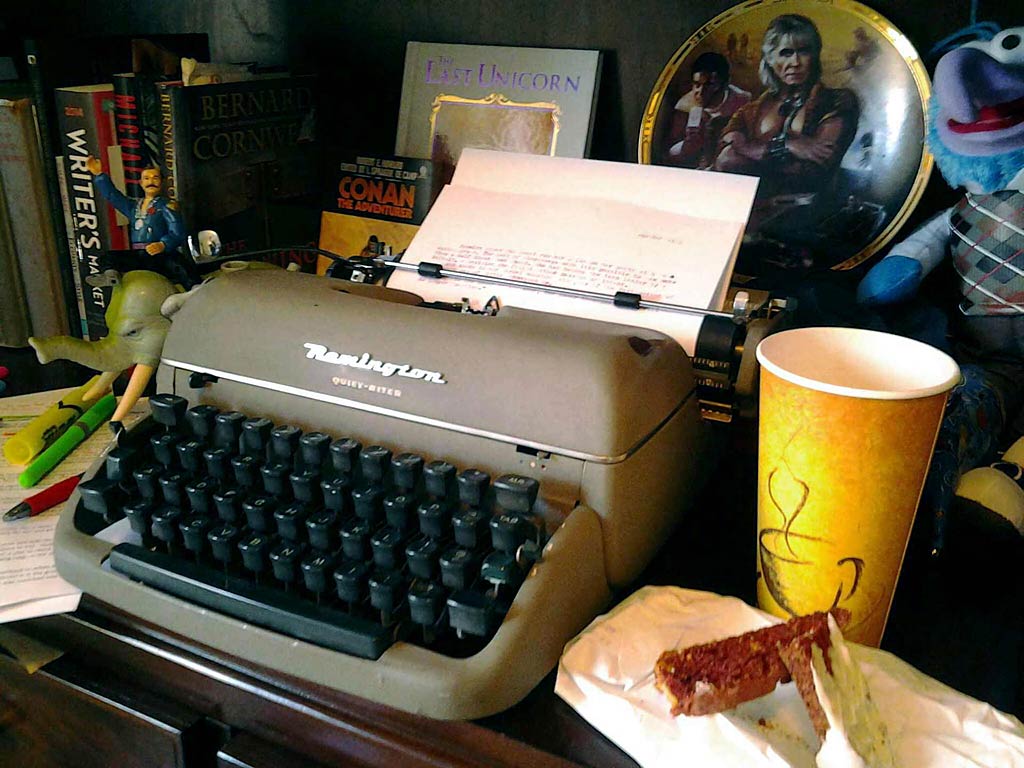When starting your story remember thy Roman poet’s advice, ”IN MEDIA RES” or “In the middle of things.” This is especially important with ORIGIN stories which tend to have very slow, exposition heavy beginnings.
In media res is also a close cousin of our modern adage “Enter late, leave Early.”
You want to keep your scenes as close to the action/drama as possible and cut them with the audience wanting more.
This is one of the reasons why you should always cut entrances and exits. I discuss In Media Res more in depth in the “things to remember” section of the Working Writer’s Guide to Comics, but let’s run through an example;
Setup:
You’re writing the Fantastic Four and Johnny Storm is up in the top floors of the Baxter building. While he’s relaxing watching TV, Mr. Fantastic calls Johnny and tells him to meet him at the diner around the corner.
Not In Media Res:
Not following the rule of In Media Res, you might script Johnny answering the phone, agreeing to meet Reed, walking out into the hall, ringing for the elevator, riding the elevator downstairs, leaving the lobby, crossing the street, walking along the sidewalk toward the diner, opening the diner door, etc.
In Media Res:
Following the rule of In Media Res, you might script Johnny answering the phone, agreeing to meet Reed, then jump right to the two in the middle of a conversation at the diner.
In fact, to be really In Media Res, you don’t even need the phone call setup at all…
Dr. Doom laughs as he pours the mutagen liquid into his new missile… Cut to Johnny sitting across from Reed at a diner;
JOHNNY: I ditched Frankie in the middle of a movie. This better be good, Reed.
REED: I couldn’t risk telling you over the phone. The Skrulls are back, and they’ve got Sue!
It’s extremely easy to write script when there are no limitations. We’re writers… we like to write. We like details and what seems superfluous to others, are the quaint moments we writers really appreciate… but the reality is, comics are a very finite medium.
One of the most important skills a comic writer must master, is the ability to write effectively, in limited space.
For this reasons we assess all scenes and panels for narrative drive. If the scene or panel doesn’t propel the story forward, if it doesn’t have high narrative significance, we get rid of it!
Consider this.
In our sample above, after Johnny answered the phone and told Reed he’d meet him at the diner, why was the next panel Johnny walking out into the hall of the Baxter building? Why wasn’t it Johnny brushing his teeth, putting on his jacket, tying his shoes, flushing the toilet he forgot to flush earlier? The point is, there are literally a million things, a million details that we can choose to showcase as writers…
It’s our job to choose the ones that will make a good, entertaining narrative for the reader.
And remember, if you spend a page showing Johnny tying his shoes and cleaning up before heading out, that’s an entire page you do not get to use when the FF throw down against the Skrulls later on. ▪
About the Author —
Nick Macari is a full-time freelance story consultant, developmental editor and writer, working primarily in the independent gaming and comic markets. His first published comic appeared on shelves via Diamond in the late 90’s. Today you can find his comic work on comixology, amazon and in select stores around the U.S. Visit NickMacari.com for social media contacts and news on his latest releases.
For more tips, bookmark the writing craft page. For all the tips buy the book.
Show your support by sharing the writing craft page on your social media.
© 2016 Nick Macari. No reproduction without written permission.
